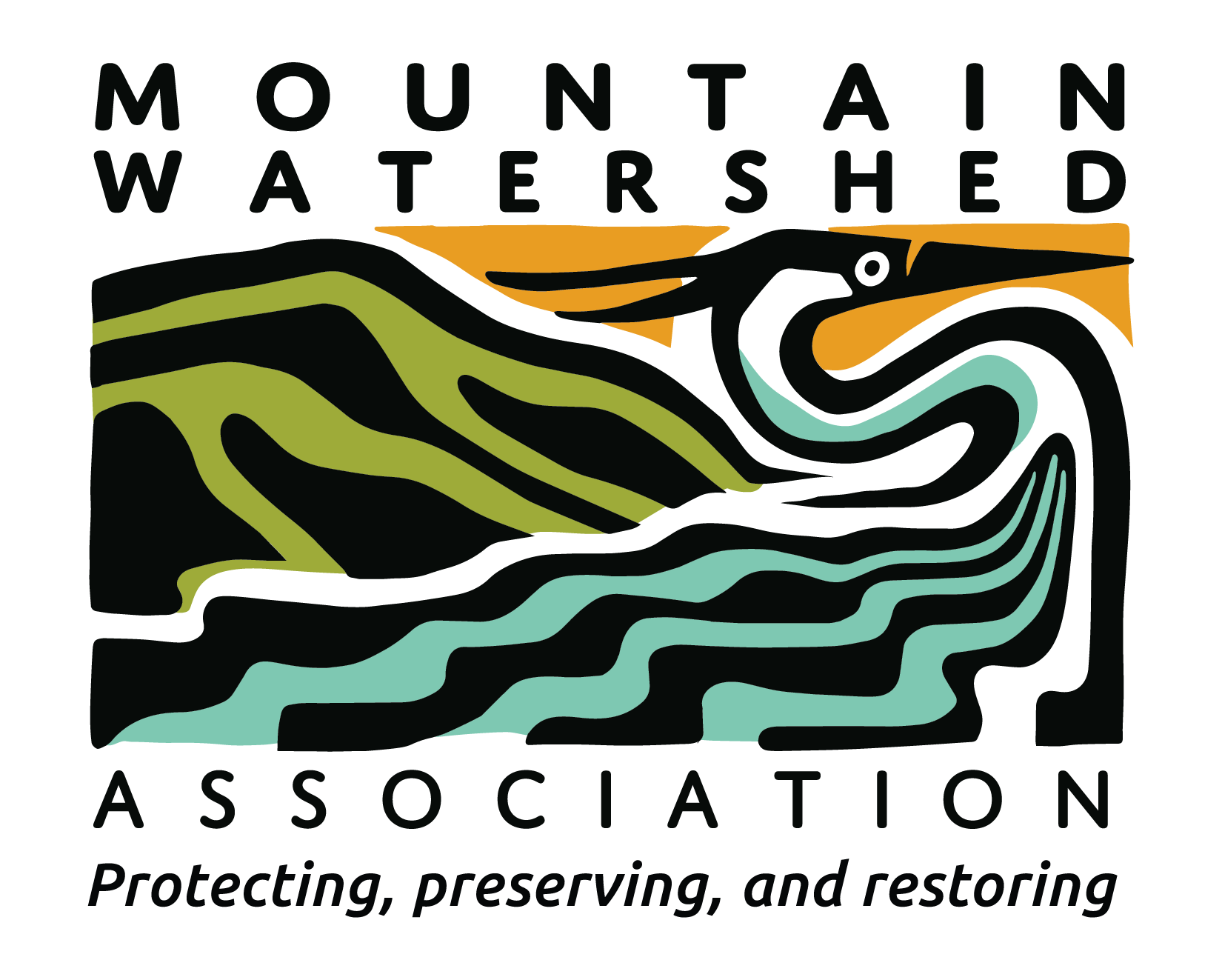The Curry mine proposal began as far back as 2009 and has been an ongoing battle over whether to allow strip mining along the Great Allegheny Passage and whether timbering a permitted mine site is a mining activity or not. After the lack of proper erosion and sedimentation controls at the timbering site created substantial plumes of sediment into the Yough, we made numerous complaints to both the Fayette County Conservation District (FCDD) and the PA Department of Environmental Protection (PADEP). PADEP stated the Conservation District should be responsible for enforcing the Erosion and Sedimentation Control Plan, and that this was not a mining issue. The Fayette County Conservation District (“FCCD”) stated that if the timbering was occurring for future mining it should be regulated by the mining NPDES permit. After no action was taken by either FCCD or PADEP, on July 25, 2013 we filed a complaint with the federal Office of Surface Mining (“OSM”).
A site inspection on March 12, 2014 with OSM revealed that the site had been logged extensively. There was little in the way of ground cover. Haul roads had not been stabilized at all, and ruts from tires were several feet deep in places. It was raining, and water was running uncontrolled off of the site toward the river. A lawsuit ensued in which OSM asserted the timbering was, in fact, a mining activity despite the DEP and the mining company’s assertions that it was not. The decision was made that this tree clearing was indeed a pre-mining activity.
Fast forward to current times.
Amerikohl Mining, Inc. appealed the federal Office of Surface Mining’s (OSM) 2017 decision which found that tree clearing at a mine site constituted “pre-mining activity”.
Amerikohl argues that even though they had a permit to mine the coal underneath a property, the timbering at the surface site was not done in connection to Amerikohl’s mining permit. Amerikohl claims this, even though in 2013 their Vice President, David Maxwell, requested in an email to Curry Lumber that the trees be removed before a specific date. Amerikohl takes the position that the email’s language: “[it] would be nice if [the area] was cut by March 31st” did not constitute a request and so Curry Lumber acted independently and of its own volition.
Amerikohl argues that since Curry Lumber caused pollution of the Yough during timbering that was undertaken independently, it is “unrelated to and outside the scope of the Surface Mining Control and Reclamation Act (SMCRA).” In essence, Amerikohl claims that OSM had no authority to make its decision and so it should be overturned by the District Court.
OSM’s decision to categorize timbering as pre-mining activity was a win for the environmental community across the nation. The decision was made on a federal level and so signifies that mining companies across the nation can be held accountable for the way in which a mine site is timbered. For example, a mining company would have to ensure that proper erosion and sedimentation controls and other best management practices are used during the tree clearing that takes place. However, if Amerikohl is successful in its appeal, the liability can be shifted onto a contractor more easily.
On May 14, 2018, Mountain Watershed was granted permission by the District Court to submit an amicus brief in support of the federal agency’s decision. We hope the Court affirms the previous decision and, in doing so, continues to hold Amerikohl and other mining companies accountable for devastation that may occur from timbering activity at mine sites.

